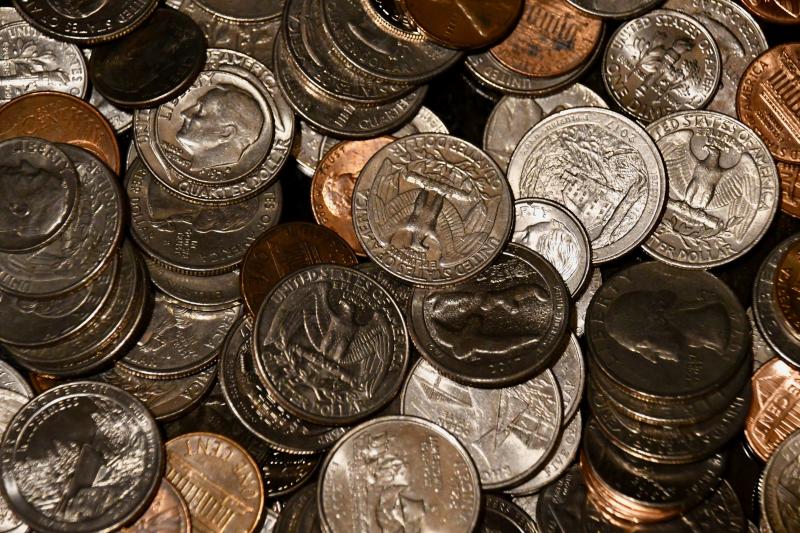A national coin shortage? Really? Believe it.
Jack Riddle, Community Bank president, said the coin shortage is real. “Every bank we talk to says they are experiencing a shortage,” he said.
Officials are blaming the COVID-19 pandemic for the shortage because people are not spending as much cash, but there is a combination of factors contributing to coins disappearing from circulation. Community Bank is receiving about 10 percent of its normal coin allocation from the Federal Reserve.
Riddle said the first hint of a shortage surfaced early in the COVID-19 crisis. “We were told our orders would be substantially shorted, but we never anticipated such a drastic decrease,” he said. “I’ve never seen anything like this before. People are not going out as much and not using much cash. Debit card use has increased dramatically.”
A major factor in the coin shortage is the decrease in spending because of state-of-emergency restrictions. Shopping and eating out, in an area that relies on tourists spending money, have fallen off because of the pandemic. Many stores considered nonessential were shut down for the first few months of the COVID-19 state of emergency. Currently, retail stores and restaurants can operate at 60 percent of normal capacity.
Riddle said one theory is that families who save coins for vacation money are not taking trips, and that change is not being pumped back into the system. “Instead, people are spending money on home improvements and anything associated with the outdoors,” he said. Most of those purchases are made with cards, not cash.
Quarters, the lifeblood of the resort communities, are the big issue, Riddle said. Cash and coins are still in high use in the the Cape Region. “Our merchants need coins and especially quarters,” he said.
Riddle said people have resorted to getting quarters from change machines, especially those on the Boardwalk in Rehoboth Beach. “Merchants are saying their machines are getting drained because people can't get quarters anywhere else, and many are not spending that money in their establishments,” he said.
Some businesses, such as Wawa offering free drinks and hoagies for rolled coins, are providing incentives to customers who cash in coins. Many are requesting customers to use debit and credit cards only, and some are asking customers to round up the cost of their purchases to support various charities so coins are not dispersed.
Riddle said most banks have phased out their cash-counting machines. “But we reinvested in coin counters for our customers because we need to provide local merchants with coins,” he said.
He said the bank had a contest for employees to bring in their jars of coins. “Unbelievably, we harvested $10,000 in change,” he said. “We are urging our customers to bring in coins.”
“During this COVID-19 crisis, cash and coin is piling up somewhere. I don’t buy into the conspiracy that this is a way to get rid of coin,” he said. “Hopefully, it will break loose soon. This is a real challenge for all of us.”
Fed increasing coin allocation
A June 11 Federal Reserve news release confirmed that coin deposits to the reserve had declined, and that the U.S. Mint had decreased coin production with staff reductions due to the pandemic. The Federal Reserve supplies coins to commercial banks based on their size.
"Although the Federal Reserve is confident that the coin inventory issues will resolve once the economy opens more broadly and the coin supply chain returns to normal circulation patterns, we recognize that these measures alone will not be enough to resolve near-term issues," the June 11 release said.
The mint has also returned to full staffing and began working to maximize coin production capacity.
Federal Reserve officials announced that coin allocation increased Aug. 10. “This allocation does not signal that the coin issue has been resolved,” officials said, asking their customers to only order what is needed to meet near-term demand.
For example, large banks were allocated only $30,000 in quarters weekly in mid-June compared to the new allocation of $180,000.





















































